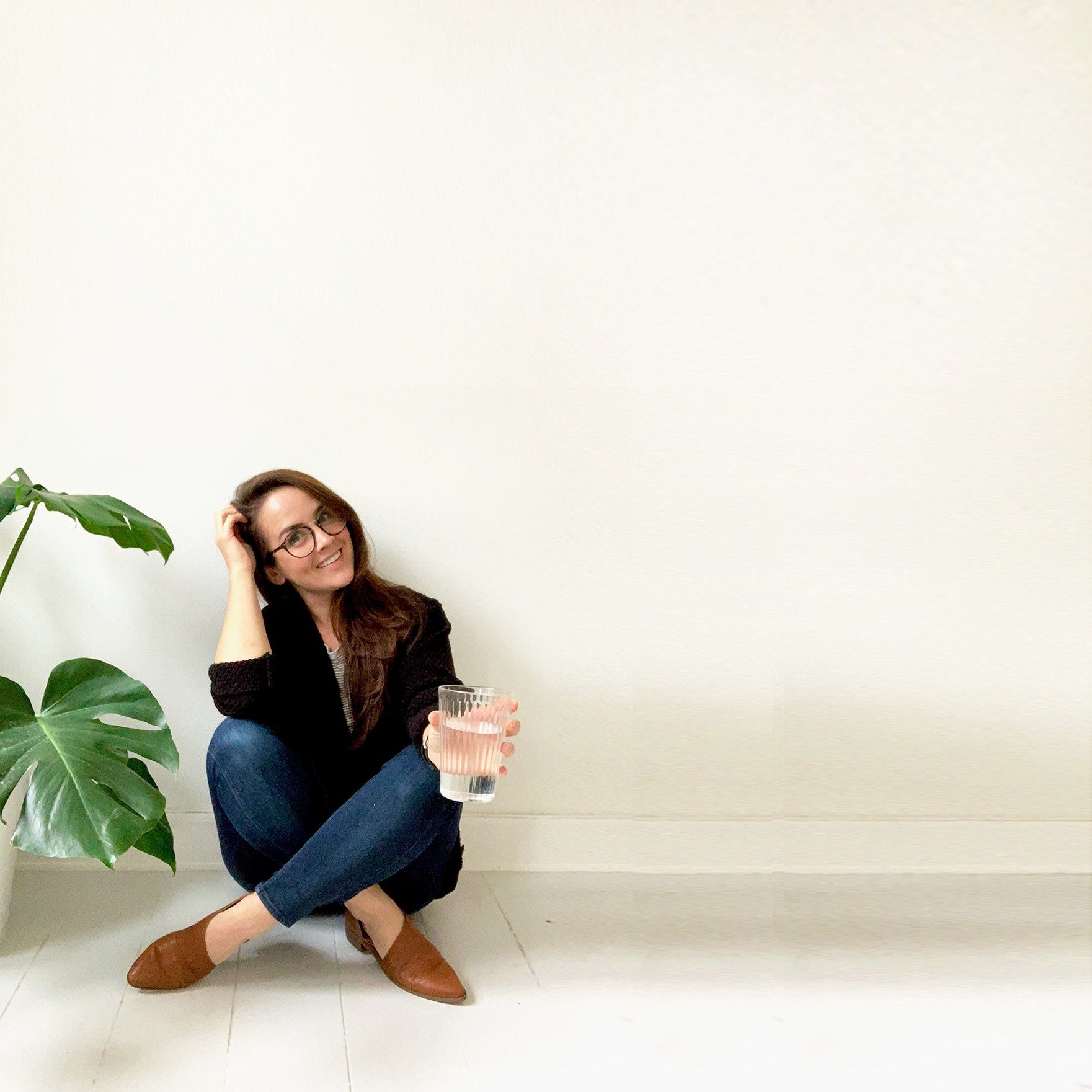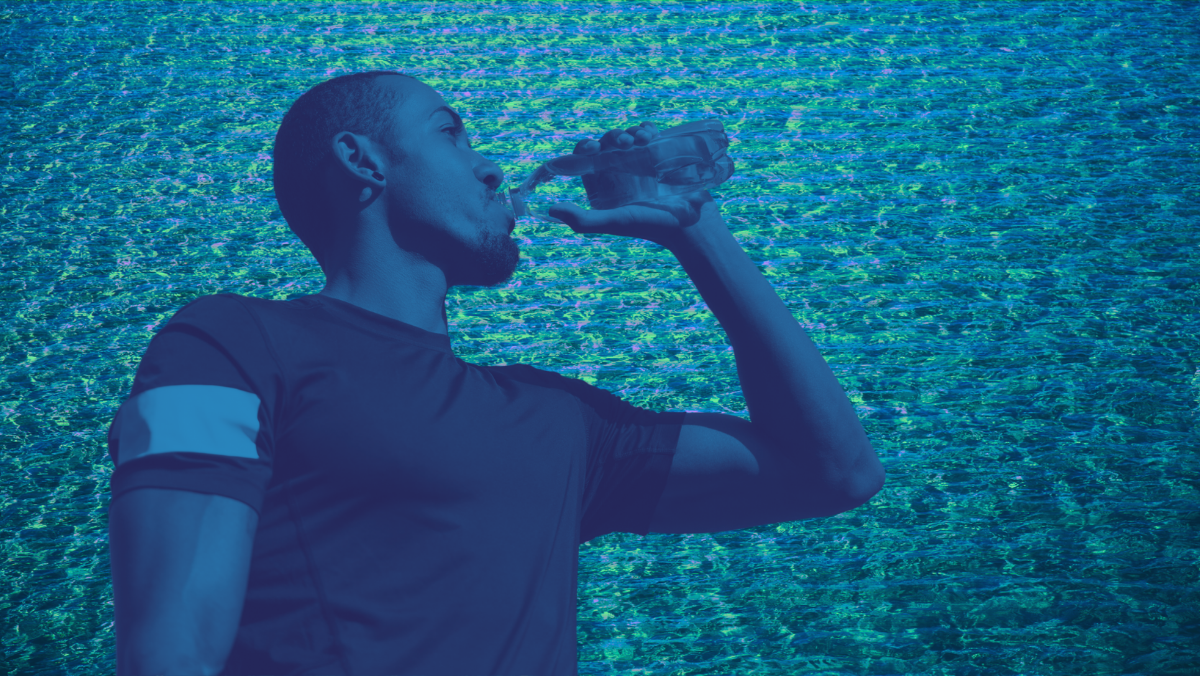What if the secret to looking, feeling, and performing your best was as simple as walking over to the tap and filling up a cup of water?
I know, I know. I sound like an infomercial.
But as the founder of Hey You Drink Water, I’m here to tell you that…well, you should probably drink some damn water.

And no, I’m not going to tell you to drink eight glasses a day. Or to start carrying around an enormous jug of water (bro…no).
What I am going to share is how to properly hydrate your body to maximize physical and cognitive health.
Ready for some solid ‘drink more water’ tips (and the why’s behind them)? Read on:

The first thing to know is that more than 75% of American adults exist in a state of chronic mild dehydration.
This type of dehydration isn’t severe enough for a hospital visit, but it forces your body to operate at a lower caliber—something it can sustain on the 20 ounces of Starbucks you’re providing it.
Signs of chronic mild dehydration vary widely since hydration has a direct impact on almost every bodily system and function.
But some of the first signs are brain fog, slow reaction time, sleepiness, and even full-body fatigue.
You’ll typically experience these symptoms before your brain even begins to trigger your thirst indicators.
That means if you feel a pang of thirst? Yeah, you’re already dehydrated and have been suffering the consequences of a slowed-down brain. This is how the majority of us exist day in and day out….afternoon slump, anyone?
If a fast and efficient brain isn’t enough to turn you into a hydravangelist, consider some of the other benefits of consuming more water each day:
Better-looking skin. A common side effect of mild dehydration are dark undereye circles and chapped lips. Not a cute look for a big (Zoom) presentation or socially distanced date. When you’re hydrated, your skin will plump up, helping to fill in fine lines and wrinkles.
Good oral health. Even mild dehydration can cause bad breath and an increased risk of cavities.
Improved mood. Hydration literally impacts your mood state, which means the more hydrated you are the more easily you can control your mood and process emotions (perhaps it’s finally time to unpack that childhood trauma or address any lingering toxic masculinity?!). It can also decrease feelings of anxiety as well as stress hormones.
Better orgasms. Yes, really. Hydration impacts the volume of every fluid in your body. Sweat, blood, cerebrospinal fluid, and yes….even that one. Dehydration can lead to decreased sperm quality as well as a decrease in volume. Not to mention that hydration will increase blood flow leading you to more satisfying orgasms (there’s also a strong link between dehydration and erectile dysfunction).
Do I have your attention now? Hope so.
My suggestion is to set a daily water goal that is half your body weight (in pounds) in ounces. Top your goal off around 100 oz, but don’t hesitate to drink more if it feels natural to do so.
Don’t just focus on drinking plain water, though. You’ll maximize the benefits when the water you drink is combined with trace minerals, electrolytes, and plenty of fiber.
The three rules for optimum hydration as outlined by Dr. Dana Cohen in her book Quench (highly recommend) are:
1. Drink water. 2. Eat water. 3. Move water.
Drink water – Keep your water cup full (this is my favorite one), and incorporate plenty of lemon water, green juice, and hydrating beverages into your routine —- all of these can count toward your daily water goal.
Eat water – Get a lot of fiber and water-rich plants into your diet (at least 10 servings each day). These lists as well as my hydrating meal plan eBook can help.
Move water – Avoid being sedentary. The more regularly you move, the more efficiently the water you consume is distributed throughout your body and all its tissues.
Something as simple as getting up from your desk once an hour, stretching and twisting, or going for a long walk can have a huge impact on your long-term health and hydration.
But when will you know that you’ve arrived at Hydration Station?
Look for the cognitive signs first.
You’ll have more energy, your reaction time will improve, you’ll have less brain fog and fatigue throughout the day and eventually, you’ll likely notice that your mood and mental health seem a bit more optimistic, as well.
Physically you can be on the lookout for brighter skin, healthier nails, and hair that grows faster or feels stronger.
How to know if you’re drinking enough water?
A hydrated person should urinate every 2-3 hours with a strong stream lasting 15-25 seconds, and your urine should be the color of straw.
Clear urine is actually not a great indicator of proper hydration — it might mean that you are over-hydrating and not consuming enough nutrients alongside it.
Keep in mind that hydration requires consistency, and it can take up to 2 weeks of consistent hydration before you start to feel all the benefits. The best thing you can do to support a hydrated lifestyle is to get a designated water cup and keep it with you at all times.
Put it next to your bed at night, in the kitchen while you’re cooking, in the car during your commute, and on your desk while you’re working!
We are more likely to drink water when it’s accessible, but the cup also acts as a visual reminder that will help you slowly restore your natural thirst indicators.

Want consistent drink more water tips and reminders?
Follow along with me on Instagram at Hey You Drink Water to get my best tips snuck right into your feed!
Or, for some gentle coaching and accountability check out my 2-week online course at HydrationChecklist.com.
From my full water cup to yours…cheers!






